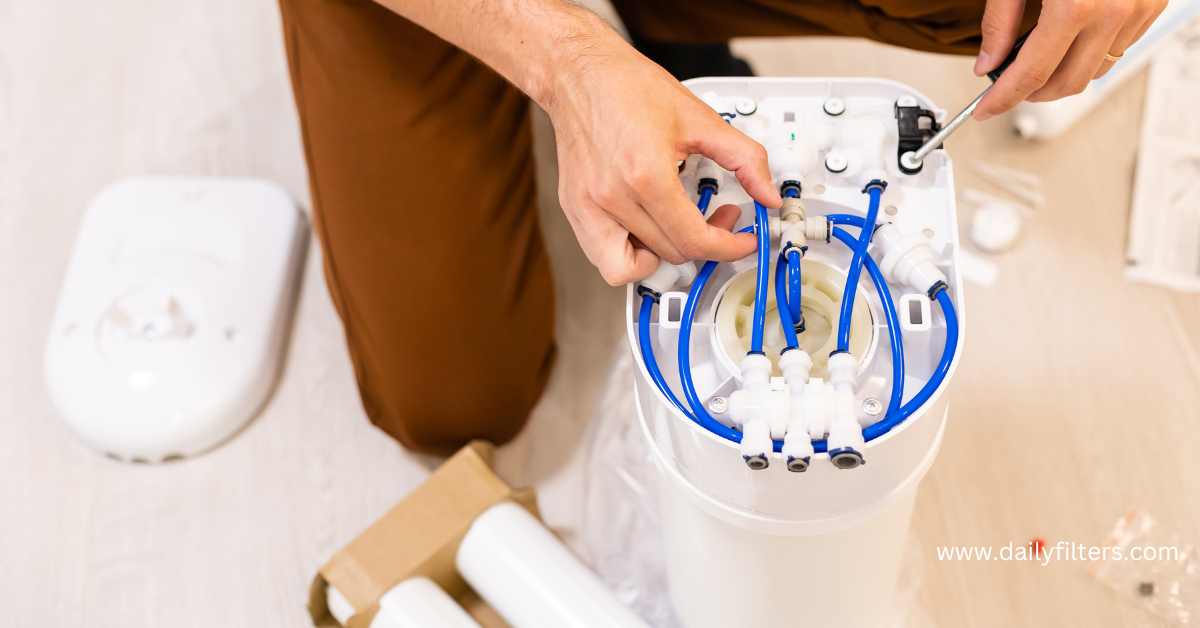Water filters play a crucial role in maintaining the quality and safety of our drinking water. They are designed to remove impurities, contaminants, and potentially harmful substances from our water supply. However, a common concern among homeowners considering whole house water filters is whether they can negatively impact water pressure.
In this article, we will explore the relationship between whole house water filters and water pressure to help you make an informed decision.
Introduction
Clean and safe drinking water in every home is of utmost importance because of water’s central role in our everyday lives. Whole-home water filters have become more popular as a practical approach to cleaning water from toxins before it’s used throughout the house. However, the potential loss of water pressure is a worry that must be addressed before such systems may be installed.
The Basics of Whole House Water Filters
A whole house water filter is a system that filters all of the water coming into a home. They are built to filter water as it enters the property, delivering purified water to all fixtures and appliances. Sediment, chlorine, metals, pesticides, and more may all be filtered out by these systems.
How Water Pressure Works
Water pressure is the force at which water flows through pipes and fixtures in your home. It is normally measured in pounds per square inch (PSI). The main water supply delivers water to your home at a certain pressure, and the municipal water system or a private well maintains this pressure.

Factors Affecting Water Pressure
Several factors can influence water pressure in a household. These include:
Distance from the Water Source
The distance between your home and the water source can impact water pressure. Longer distances may result in reduced pressure due to friction and resistance within the plumbing system.
Plumbing System Condition
The condition of your plumbing system plays a role in water pressure. Older pipes may have corrosion or mineral buildup, restricting the flow and reducing pressure.
Demand for Water
High demand for water within your home, such as the simultaneous use of multiple fixtures or appliances, can lead to a temporary drop in water pressure.
Water Supply Infrastructure
Issues with the municipal water supply infrastructure, such as main breaks or maintenance activities, can affect water pressure in your area.
Do Whole House Water Filters Reduce Water Pressure?
It is natural to wonder whether installing a whole house water filter will affect water pressure. While some water filters may cause a slight reduction in pressure, modern whole house water filters are designed to minimize this impact. The effect on water pressure largely depends on the specific filter system, the condition of your plumbing, and the overall demand for water in your household.
Choosing the Right Whole House Water Filter
Choosing the right whole house water filter for your needs is important to ensure minimal impact on water pressure. Consider the following factors:
Flow Rate
A water filter’s flow rate determines how much water it can purify in a given time period. Find a filter with a flow rate high enough to satisfy your family’s needs without sacrificing too much pressure.

Filter Capacity
Different filters have varying capacities for the amount of water they can filter before requiring replacement. Consider your household’s water consumption and choose a filter with an appropriate capacity.
Filtration Efficiency
Evaluate the filtration efficiency of the water filter to ensure it effectively removes the contaminants that concern you the most. Look for certifications and independent testing results to validate the performance claims.
Installation Considerations
Correct installation is essential for optimum efficiency and the lowest influence on water pressure. If you feel uncomfortable installing it yourself, call a plumber or read the manual thoroughly. Keep the water pressure steady by adjusting the filtration system to the right size.
Maintaining Optimal Water Pressure
Regular maintenance of your whole house water filter and plumbing system is essential for maintaining optimal water pressure. Follow the manufacturer’s guidelines for filter replacement and perform routine inspections to identify and address any plumbing issues promptly.
Benefits of Whole House Water Filters
Despite concerns about water pressure, the benefits of installing a whole house water filter are significant. These benefits include:
- Improved water quality for drinking, cooking, and bathing
- Reduced exposure to harmful contaminants
- Prolonged lifespan of plumbing fixtures and appliances
- Enhanced taste and odor of water
Conclusion
Whole house water filters are an excellent investment for ensuring clean and safe water throughout your home. While they may cause a slight reduction in water pressure, modern systems are designed to minimize this impact. By selecting the right filter, following proper installation procedures, and conducting regular maintenance, you can enjoy the benefits of filtered water without compromising water pressure.
FAQs
How can I determine the ideal flow rate for a whole house water filter?
To determine the ideal flow rate, consider the number of fixtures and appliances that will use water simultaneously in your household.
Do whole house water filters require professional installation?
While it is recommended to seek professional installation, some whole house water filters come with detailed instructions for DIY installation.
Can a whole house water filter remove all contaminants?
Whole house water filters can effectively remove a wide range of contaminants, but the specific contaminants removed may vary based on the filter type.
How often should I replace the filters in a whole house water filter system?
The replacement frequency of filters depends on factors such as filter capacity, water quality, and household water consumption. Refer to the manufacturer’s guidelines for filter replacement intervals.

